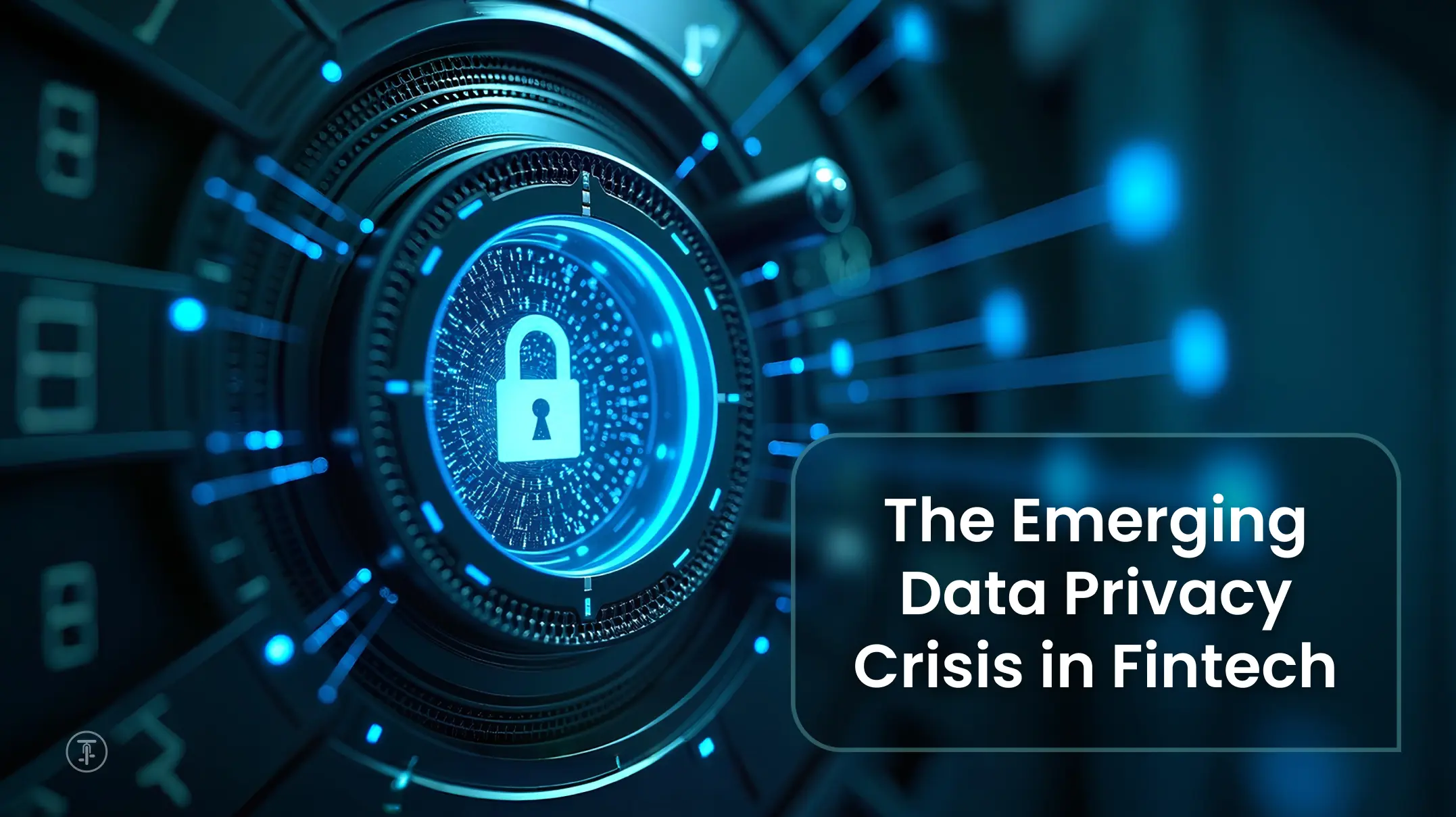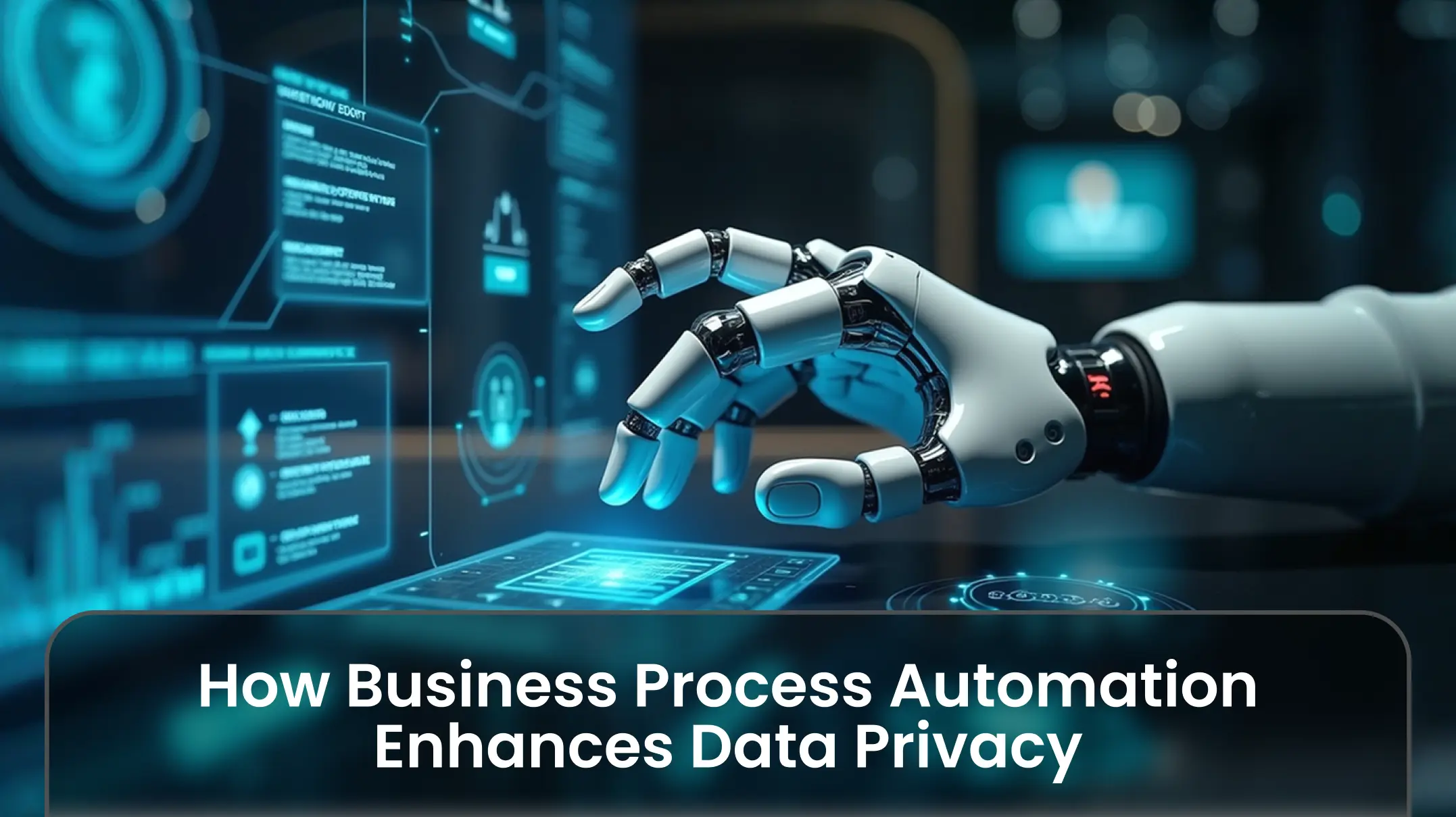Introduction
Think about this: A fintech company quickly grows, processing thousands of transactions a day. And then, suddenly, a data breach reveals customers’ banking information. The consequence? Millions in losses, regulatory attention, and a ruined reputation.
This isn’t hypothetical; it’s reality for businesses ignoring data privacy. With fintech expected to grow beyond $1.5 trillion by 2030, cybercriminals are more active than ever. A 2024 IBM report found that financial services experience the highest average data breach cost—$5.9 million per incident.
However, many fintech firms do not have strong data privacy strategies. This article highlights the importance of data privacy in fintech and explores how business process automation (BPA) can benefit these companies.
The Emerging Data Privacy Crisis in Fintech

Why Data Privacy Is More Important Than Ever
Data is the currency of fintech, and with such power comes such responsibility. Top of mind are:
- Regulatory pressure: GDPR, CCPA, and PCI-DSS require tough data management.
- Consumer trust: 73% of consumers indicate they will not purchase from brands that fail to secure their data (PwC).
- Cybersecurity threats: AI-powered cyber attacks are rendering old security models outdated.
Real-World Case Study: The Capital One Data Breach
Capital One was hit with a breach of 100 million customers in 2019, revealing names, addresses, and financial information. Why? A misconfigured firewall and bad automation. This resulted in a $80 million penalty and court battles, making the need for secure business process automation imperative.
How Business Process Automation Enhances Data Privacy

What is Business Process Automation in Fintech?
BPA utilizes AI, RPA (Robotic Process Automation), and machine learning to automate workflows, minimize human error, and maximize compliance. When implemented appropriately, it:
- Automates sensitive data processing
- Identifies and prevents fraud in real-time
- Validates financial regulation compliance
- Minimizes human exposure to confidential data
Main Methods BPA Strengthens Data Security
Automated Encryption & Tokenization
- Safeguards sensitive data by substituting it with anonymized tokens.
- Guarantees end-to-end encryption, forbidding unauthorized access.
AI-Powered Fraud Detection
- Machine learning detects suspicious transactions in real-time.
- Prevents fraud before it happens, protecting user information.
Access Control & Identity Authentication
- Biometric security and multi-factor authentication (MFA) minimize risks.
- Restricts employee access to confidential financial information.
Automated AML/KYC Monitoring
- Checks for AML (Anti-Money Laundering) and KYC (Know Your Customer) breaches in transactions.
- Lowers compliance costs and prevents hefty fines from regulators.
Case Study: How PayPal Leverages Automation for Security
PayPal uses AI-powered automation to fight fraud, control risk, and protect user transactions. The outcome? 43% fewer fraudulent transactions and higher customer trust.
The Business Risks of Ignoring Data Privacy

Financial & Legal Consequences
- Fines & lawsuits: Failure to comply with GDPR, CCPA, or PCI-DSS can incur multi-million-dollar fines.
- Data breach costs: In addition to losses, business gets sued, settles, and loses reputation.
Loss of Customer Trust
- A McKinsey report in 2023 discovered that 85% of customers leave fintech platforms they find insecure.
- It takes years and a lot of investment to rebuild trust after a breach.
Operational Disruptions
- Security breaches compel businesses to suspend services, resulting in revenue loss.
- Manual remediation adds to IT expenses and slows growth.
Best Practices for Data Privacy in Fintech

Securely Implementing Business Process Automation
- Employ AI-driven security tools to automate data monitoring.
- Implement Zero Trust Architecture (ZTA)—never assume any user or system is trusted by default.
- Automate compliance reporting to steer clear of legal traps.
- Regularly audit data access controls and user permissions.
Utilizing Blockchain for Data Privacy
- Decentralized ledger technology (DLT) provides transparency and minimizes fraud.
- Smart contracts execute secure transactions automatically without mediators.
Educating Employees & Customers
- Launch cybersecurity training programs for employees.
- Educate users about data protection, phishing scams, and security best practices.
Why Pedals Up is Your Fintech Data Privacy Partner

Data privacy is not something to ignore in 2025. As cyberattacks increase and regulations become stricter, business process automation for security becomes a top priority for fintech businesses. With AI, encryption, and automation, businesses can defend data, establish trust, and grow with confidence.
At Pedals Up, we are experts in embedding business process automation to make fintech companies secure. Our solutions assist you in:
- Automating security & compliance
- Minimizing fraud risks with AI-driven tools
- Building customer trust with strong encryption
- Facilitating effortless regulatory compliance
Want to safeguard your fintech business? Schedule a free consultation today and future-proof your security strategy!




